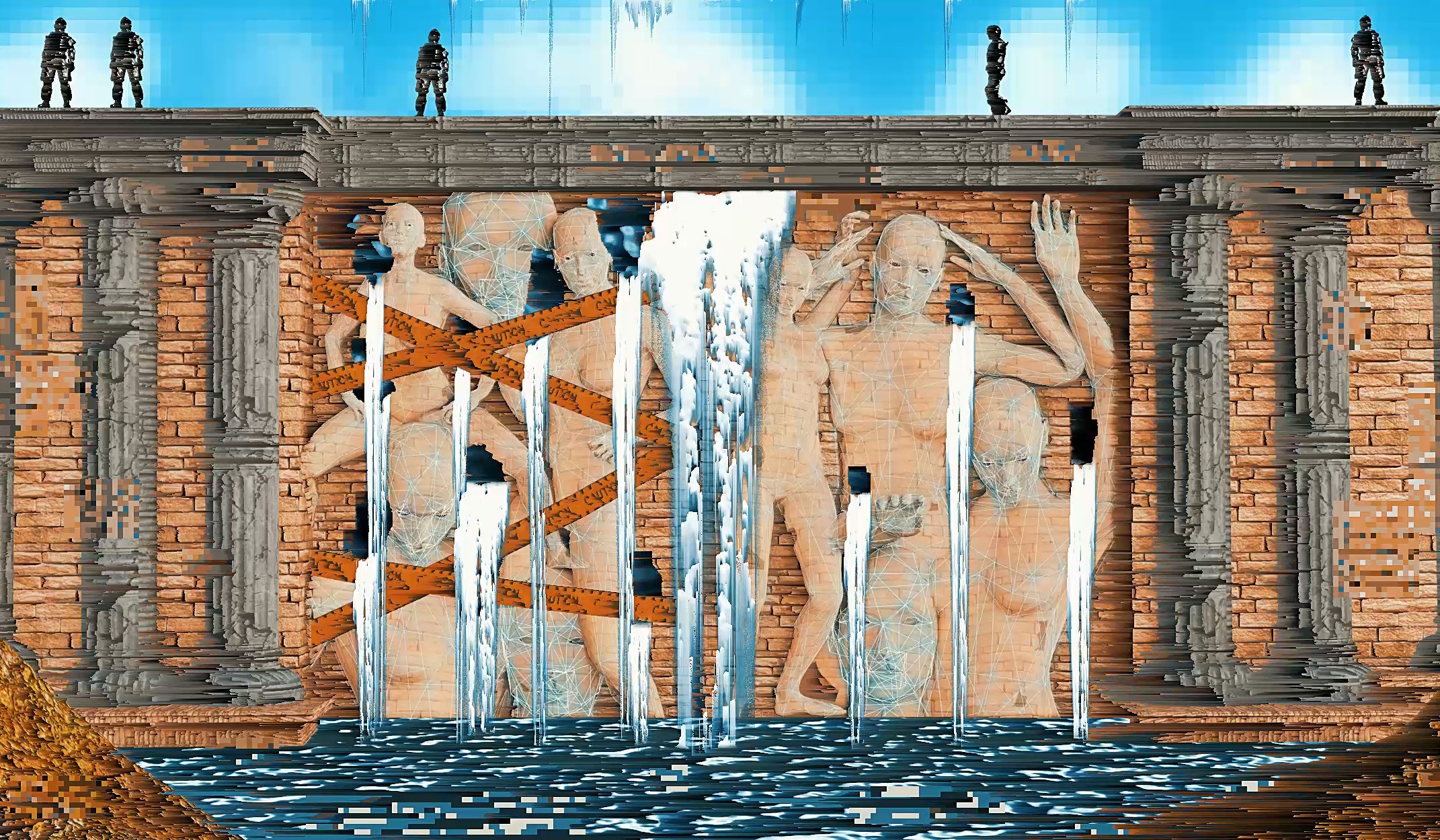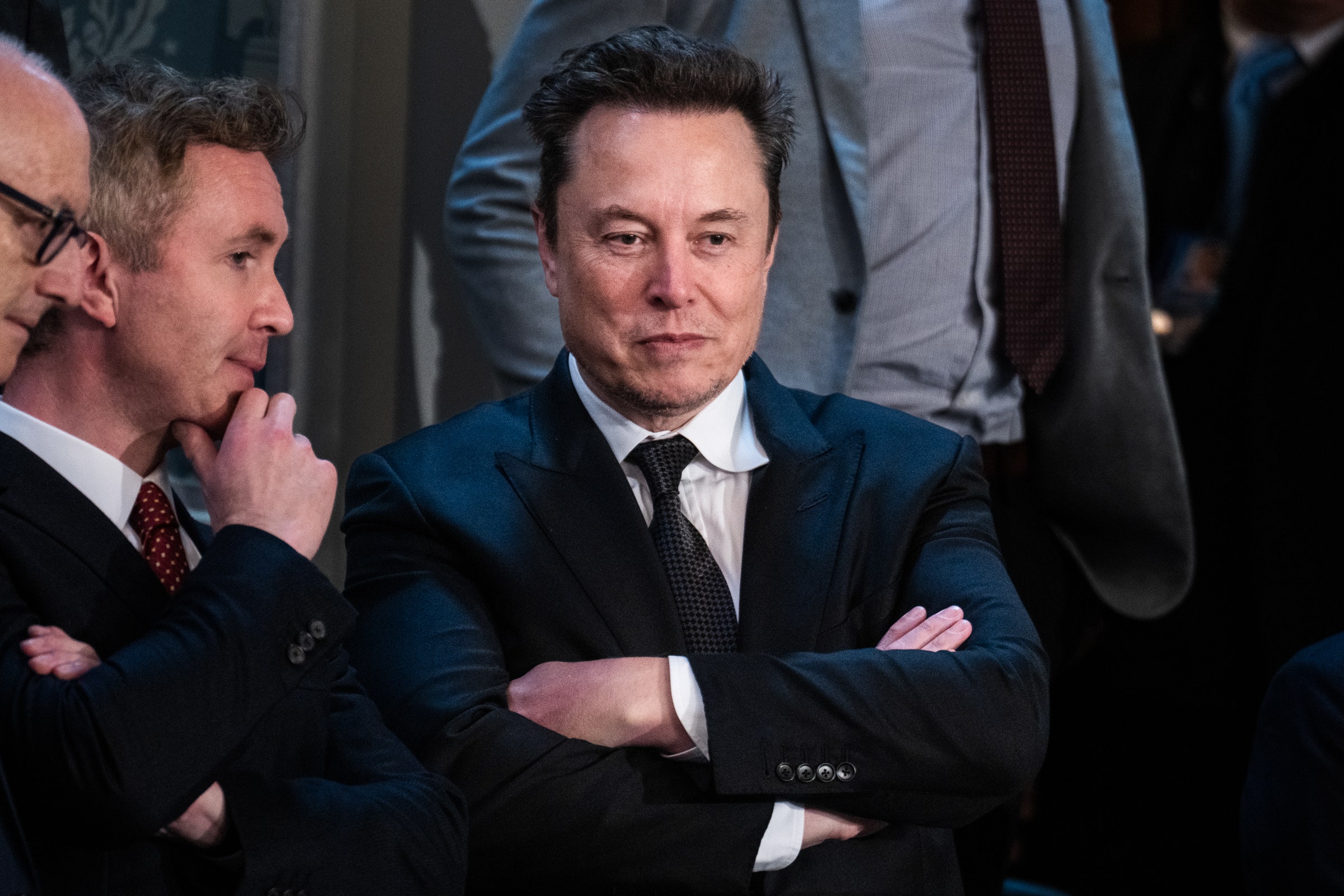
As national legislation on deepfake pornography crawls its way through Congress, states across the country are trying to take matters into their own hands. Thirty-nine states have introduced a hodgepodge of laws designed to deter the creation of nonconsensual deepfakes and punish those who make and share them.
Earlier this year, Democratic congresswoman Alexandria Ocasio-Cortez, herself a victim of nonconsensual deepfakes, introduced the Disrupt Explicit Forged Images and Non-Consensual Edits Act, or Defiance Act. If passed, the bill would allow victims of deepfake pornography to sue as long as they could prove the deepfakes had been made without their consent. In June, Republican senator Ted Cruz introduced the Take It Down Act, which would require platforms to remove both revenge porn and nonconsensual deepfake porn.
Though there’s bilateral support for many of these measures, federal legislation can take years to make it through both houses of Congress before being signed into law. But state legislatures and local politicians can move faster—and they’re trying to.
So far, 39 states have introduced some kind of legislation addressing nonconsensual deepfakes, 23 states have passed laws, four are still pending, and nine have struck proposals down.
Last month, San Francisco City Attorney David Chiu’s office announced a lawsuit against 16 of the most visited websites that allow users to create AI-generated pornography. “Generative AI has enormous promise, but as with all new technologies, there are unintended consequences and criminals seeking to exploit the new technology. We have to be very clear that this is not innovation—this is sexual abuse,” Chiu said in a statement released by his office at the time.
The suit was just the latest attempt to try to curtail the ever-growing issue of nonconsensual deepfake pornography.
“I think there’s a misconception that it’s just celebrities that are being affected by this,” says Ilana Beller, organizing manager at Public Citizen, which has been tracking nonconsensual deepfake legislation and shared their findings with WIRED. “It’s a lot of everyday people who are having this experience.”
Data from Public Citizen shows that 23 states have passed some form of nonconsensual deepfake law. “This is such a pervasive issue, and so state legislators are seeing this as a problem,” says Beller. “I also think that legislators are interested in passing AI legislation right now because we are seeing how fast the technology is developing.”
Last year, WIRED reported that deepfake pornography is only increasing, and researchers estimate that 90 percent of deepfake videos are of porn, the vast majority of which is nonconsensual porn of women. But despite how pervasive the issue is, Kaylee Williams, a researcher at Columbia University who has been tracking nonconsensual deepfake legislation, says she has seen legislators more focused on political deepfakes.
“More states are interested in protecting electoral integrity in that way than they are in dealing with the intimate image question,” she says.
Matthew Bierlein, a Republican state representative in Michigan, who cosponsored the state’s package of nonconsensual deepfake bills, says that he initially came to the issue after exploring legislation on political deepfakes. “Our plan was to make [political deepfakes] a campaign finance violation if you didn’t put disclaimers on them to notify the public.” Through his work on political deepfakes, Bierlein says, he began working with Democratic representative Penelope Tsernoglou, who helped spearhead the nonconsensual deepfake bills.
At the time in January, nonconsensual deepfakes of Taylor Swift had just gone viral, and the subject was widely covered in the news. “We thought that the opportunity was the right time to be able to do something,” Beirlein says. And Beirlein says that he felt Michigan was in the position to be a regional leader in the Midwest, because, unlike some of its neighbors, it has a full-time legislature with well-paid staffers (most states don’t). “We understand that it’s a bigger issue than just a Michigan issue. But a lot of things can start at the state level,” he says. “If we get this done, then maybe Ohio adopts this in their legislative session, maybe Indiana adopts something similar, or Illinois, and that can make enforcement easier.”
But what the penalties for creating and sharing nonconsensual deepfakes are—and who is protected—can vary widely from state to state. “The US landscape is just wildly inconsistent on this issue,” says Williams. “I think there’s been this misconception lately that all these laws are being passed all over the country. I think what people are seeing is that there have been a lot of laws proposed.”
Some states allow for civil and criminal cases to be brought against perpetrators, while others might only provide for one of the two. Laws like the one that recently took effect in Mississippi, for instance, focus on minors. Over the past year or so, there have been a spate of instances of middle and high schoolers using generative AI to make explicit images and videos of classmates, particularly girls. Other laws focus on adults, with legislators essentially updating existing laws banning revenge porn.
Unlike laws that focus on nonconsensual deepfakes of minors, on which Williams says there is a broad consensus that there they are an “inherent moral wrong,” legislation around what is “ethical” when it comes to nonconsensual deepfakes of adults is “squishier.” In many cases, laws and proposed legislation require proving intent, that the goal of the person making and sharing the nonconsensual deepfake was to harm its subject.
But online, says Sara Jodka, an attorney who specializes in privacy and cybersecurity, this patchwork of state-based legislation can be particularly difficult. “If you can’t find a person behind an IP address, how can you prove who the person is, let alone show their intent?”
Williams also notes that in the case of nonconsensual deepfakes of celebrities or other public figures, many of the creators don’t necessarily see themselves as doing harm. “They’ll say, ‘This is fan content,’ that they admire this person and are attracted to them,” she says.
State laws, Jobka says, while a good start, are likely to have limited power to actually deal with the issue, and only a federal law against nonconsensual deepfakes would allow for the kind of interstate investigations and prosecutions that could really force justice and accountability. “States don’t really have a lot of ability to track down across state lines internationally,” she says. “So it’s going to be very rare, and it’s going to be very specific scenarios where the laws are going to be able to even be enforced.”
But Michigan’s Bierlein says that many state representatives are not content to wait for the federal government to address the issue. Bierlein expressed particular concern about the role nonconsensual deepfakes could play in sextortion scams, which the FBI says have been on the rise. In 2023, a Michigan teen died by suicide after scammers threatened to post his (real) intimate photos online. “Things move really slow on a federal level, and if we waited for them to do something, we could be waiting a lot longer,” he says.




